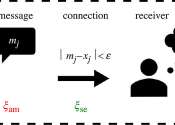Last update:
Social Sciences news

From 'yellow peril' to COVID-19: New book takes unflinching look at anti-Asian racism
More than 150 years ago, some 15,000 Chinese workers arrived in the U.S. to help construct the country's first transcontinental railroad, which connected the West Coast with the East Coast's rail network.
Social Sciences
10 hours ago
0
2

Q&A: How tea may have saved lives in 18th century England
Drinking tea can have several health benefits. There is seemingly a brew for everything from sleep to inflammation to digestion. In 18th century England, however, drinking tea may have saved a person's life, and it likely ...
Social Sciences
11 hours ago
0
4

Evolving market dynamics foster consumer inattention that can lead to risky purchases, says researchers
Researchers have developed a new theory of how changing market conditions can lead large numbers of otherwise cautious consumers to buy risky products such as subprime mortgages, cryptocurrency or even cosmetic surgery procedures.
Social Sciences
11 hours ago
0
1

How racism impacts support for affordable housing
The majority of people in the United States support affordable housing, but attitudes often shift when local developments are proposed. Stanford researchers have found that negative emotional associations with the idea of ...
Social Sciences
13 hours ago
0
17

Self-determination and social identity: Modeling team motivation
What are the underlying dynamics of group motivation in a team or organization? How does it take shape? And how does it influence a team's functioning and effectiveness?
Social Sciences
14 hours ago
0
39

US schools are not racially integrated, despite decades of effort, says educational sociologist
Nearly seven decades after the U.S. Supreme Court's unanimous landmark Brown v. Board of Education decision in 1954, the court's declared goal of integrated education is still not yet achieved.
Social Sciences
15 hours ago
0
11

Gender gaps remain for many women scientists, study finds
As more women have entered the biomedical field, they're getting a bigger share of research grants, and the gender gap in research funding appears to be narrowing, but the gains have been uneven.
Social Sciences
16 hours ago
0
1

How Black teachers lost when civil rights won in Brown v. Board
Brown v. Board of Education, the Supreme Court decision that desegregated public schools, stands in the collective national memory as a turning point in America's fight for racial justice. But as the U.S. observes its 70th ...
Social Sciences
May 19, 2024
0
2

Proposed sex education guidance in England goes against evidence and may well lead to harm
The UK government has released new plans for relationships, sex and health education (RSHE) in primary and secondary schools in England. This would see age parameters introduced for key issues in sex education, with no education ...
Social Sciences
May 18, 2024
0
1

Victim-survivors of rape and sexual assault feel perpetrators' rights supersede their own at sentencing: Report
Victim-survivors of rape and sexual assault feel perpetrators' rights and interests supersede their own at sentencing, according to new research led by the Scottish Center for Crime and Justice Research (SCCJR).
Social Sciences
May 17, 2024
0
2

Researchers discuss current state of homophobia, transphobia and biphobia
Gender-neutral bathrooms, conversion therapy and Quebec's advisory committee on gender identity have been in the news lately. These are polarizing, hot-button issues.
Social Sciences
May 17, 2024
0
2

Pickleball courts in a legal pickle over the associated noise
Pickleball Legal Consultant is a job title that likely did not exist a decade ago, but as pickleball courts infiltrate neighborhoods to satiate an appetite for a sport whose namesake is a snack, communities take issue with ...
Social Sciences
May 17, 2024
0
0

Q&A: Medical historians examine organization's silence over rise of Nazism
In December, the New England Journal of Medicine began a process of self-examination, publishing articles about the journal itself and its handling of a series of key historical injustices in medicine, including eugenics, ...
Social Sciences
May 16, 2024
0
2

Study shows movement coordination leads to strong sense of togetherness
When members of a group successfully coordinate their movements with one another, this leads to a stronger sense of togetherness. This was shown by a recent study by the Universities of Würzburg and Regensburg.
Social Sciences
May 16, 2024
0
2

Researchers say automated news video production is better with a human touch
AI-generated videos for short messages are only as well received as manually created ones if they are edited by humans.
Social Sciences
May 16, 2024
0
5

A new and better way to detect media censorship
Worldwide news media are facing increasing pressure from autocrats to report favorably about their leaders and party politics, so political scientists have launched a new computational method that can detect such media censorship ...
Social Sciences
May 16, 2024
0
1

Military rank affects medical care, offering societal insights: Study
Human relationships are inherently shaped by power dynamics, yet quantifying their impact has remained a scientific challenge.
Social Sciences
May 16, 2024
0
84

Swipe right or left? How dating apps are impacting modern masculinity
What it means to be a man is changing. Critical men or masculinity studies is an emerging robust research field that explores how men and masculinity are being transformed by shifting socio-economic, sexual and political ...
Social Sciences
May 16, 2024
0
16

Study finds saying 'please' may not be so polite in everyday requests
By kindergarten age, most children have been taught that "please" is a magic word. "Please" is an expression of politeness that shows courtesy and respect, turning a potential demand into a request that will—poof!—magically ...
Social Sciences
May 16, 2024
1
27

To sound like a hockey player, speak like a Canadian
As a hockey player, Andrew Bray was familiar with the slang thrown around the "barn" (hockey arena). As a linguist, he wanted to understand how sport-specific jargon evolved and permeated across teams, regions, and countries. ...
Social Sciences
May 16, 2024
0
1
More news

How to reward employees fairly and improve team dynamics

Have smartphones killed the art of conversation?

New research reveals just how few LGBTQI+ people play sports

How German media attention idealizes female Ukrainian refugees
Other news

A model outlining the microscopic origin of black hole entropy

Genes provide hope for the survival of Arabia's last big cat

Can coal mines be tapped for rare earth elements?

Webb Telescope offers first glimpse of an exoplanet's interior

By listening, scientists learn how a protein folds

When consumers would prefer a chatbot over a person

Algorithms help people see and correct their biases, study shows

Webb cracks case of inflated exoplanet

























































